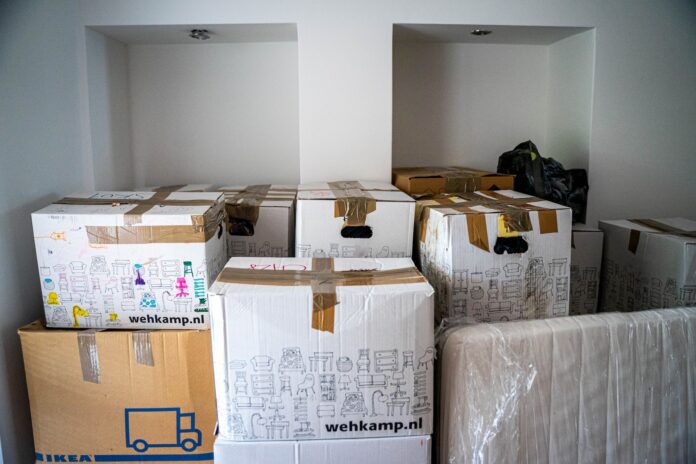| Nearly half the country believes that they would be better off and happier living abroad, according to an alarming new opinion poll revealing growing despair about the state of modern Britain. Three people in four fear that Britain is “broken” and more than half cannot name a single Conservative or Labour policy to tackle poverty. When asked whether they could have a better quality of life and earn more in Australia than the UK, 45 per cent agreed with only 14 per cent disagreeing. While Australia was named as the most popular bolthole, it was closely followed by New Zealand (44 per cent), then Denmark (39 per cent), Germany (34 per cent), Spain (29 per cent) and France (26 per cent). In each case, more people agree than disagree that they would have a better quality of life and higher earnings than they do at home. But this is not true of the USA and China. |
 |
| The troubling new findings come from polling conducted by J.L. Partners for the Centre for Social Justice (CSJ), which has embarked on a major new survey of the “state of the nation” – nearly 20 years after its Breakdown and Breakthrough Britain reports, which resulted in the biggest shake-up of the welfare system since its inception and the introduction of universal credit. The CSJ has appointed a cross-party Social Justice Commission to oversee the research and make recommendations, including former Governor of the Bank of England, Lord King of Lothbury, Labour’s Mayor of Manchester Andy Burnham and former leader of the Liberal Democrats Tim Farron. More Commissioners are to be announced in the coming days. Pessimism about the condition of modern society and a collapse in confidence in the mainstream political parties to find remedies are the most striking features of the polling. Rishi Sunak and former prime minister Boris Johnson are both seen as badly out of touch with the lives of many of the public. Around four in five (84 per cent) people say that they have little idea of what it is like to live in poverty today. This compares with Labour leader Keir Starmer (66 per cent) and King Charles (73 per cent). Awareness of measures by Conservatives and Labour to relieve poverty was dismal. But of the minority who could name a relevant Conservative policy, most people focused on the Government’s energy support package. For Labour raising taxes was most commonly cited. When asked about the Conservatives’ general approach to tackling poverty, people said it was either non-existent or in some way ‘bad’. The most popular choices were: “poor”, “non-existent”, “useless”, “rubbish”, “uncaring”, “bad”, “rich”, “poverty”, “ignore” and “awful”. Asked to describe the Labour Party’s approach to tackling poverty in one word, respondents were more positive, but most responses were still negative with a particular theme being that Labour’s proposed solutions are unrealistic. The most popular choices were: “poor”, “useless”, “rubbish”, “benefits”, “support”, “unrealistic”, “caring”, “fair”, “tax” and “money”. The CSJ argues that to reduce the strain on crumbling public services – including the NHS – and to provide the foundations for economic growth, policymakers need to take a more strategic approach to tackling the root causes of poverty, rather than assuming it can be solved through higher spending on welfare benefits alone. Lord King, former Governor of the Bank of England said: “Sluggish growth of productivity and real incomes go hand in hand, and they reflect deep economic and social factors. I welcome, therefore, the Social Justice Commission’s wide remit which will examine the underlying issues holding this country back which include family breakdown and the long tail of Covid-19. The bill for welfare and health will continue to rise unless we tackle those root causes head on. This is a time for radical thinking informed by detailed analysis”. Sir Iain Duncan Smith, who founded the CSJ nearly 20 years ago, said: “We have brought together a strong team of commissioners from across the political spectrum and with broad experience of business, the charity sector and the public sector to investigate the state of the nation, including the long term damage caused by lockdowns. The focus will be on practical, workable solutions that can work beyond electoral cycles. It is clear Britain needs a reboot. My hope is that the Social Justice Commission will get our country moving again.” The CSJ point to figures illustrating the eyewatering levels of public subsidy spent filling the empty gaps in our society. The cost of family breakdown has been estimated by the Relationships Foundation to be £51 billion. Reoffending costs £18 billion, debt problems £8 billion, while the cost to society of low numeracy alone is estimated at £20 billion per year. To reduce the immense costs of social breakdown, Commissioners will consider policy solutions from the across the UK and abroad that help to build stronger families, increase access to the labour market, improve educational standards and basic skills, reduce alcohol and drug addiction, and tackle crime and anti-social behaviour. |

| [donate]
| Help keep news FREE for our readersSupporting your local community newspaper/online news outlet is crucial now more than ever. If you believe in independent journalism,then consider making a valuable contribution by making a one-time or monthly donation. We operate in rural areas where providing unbiased news can be challenging. |




















